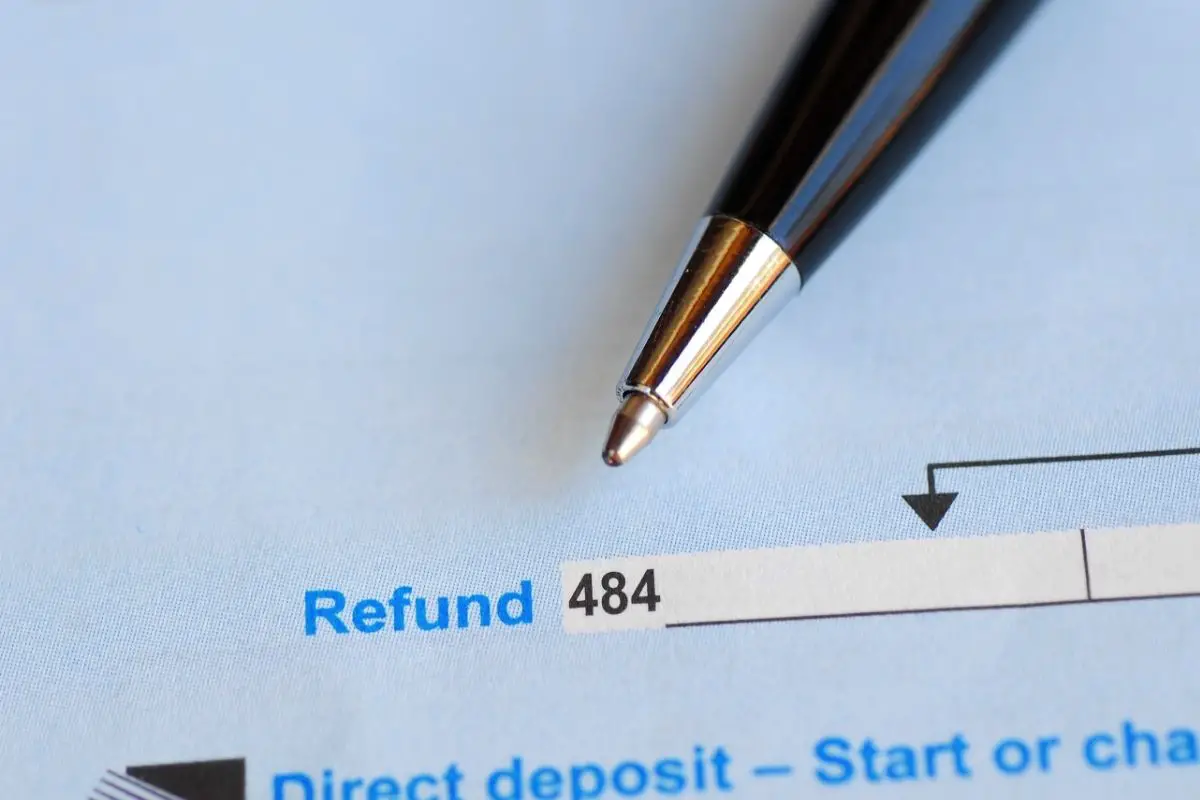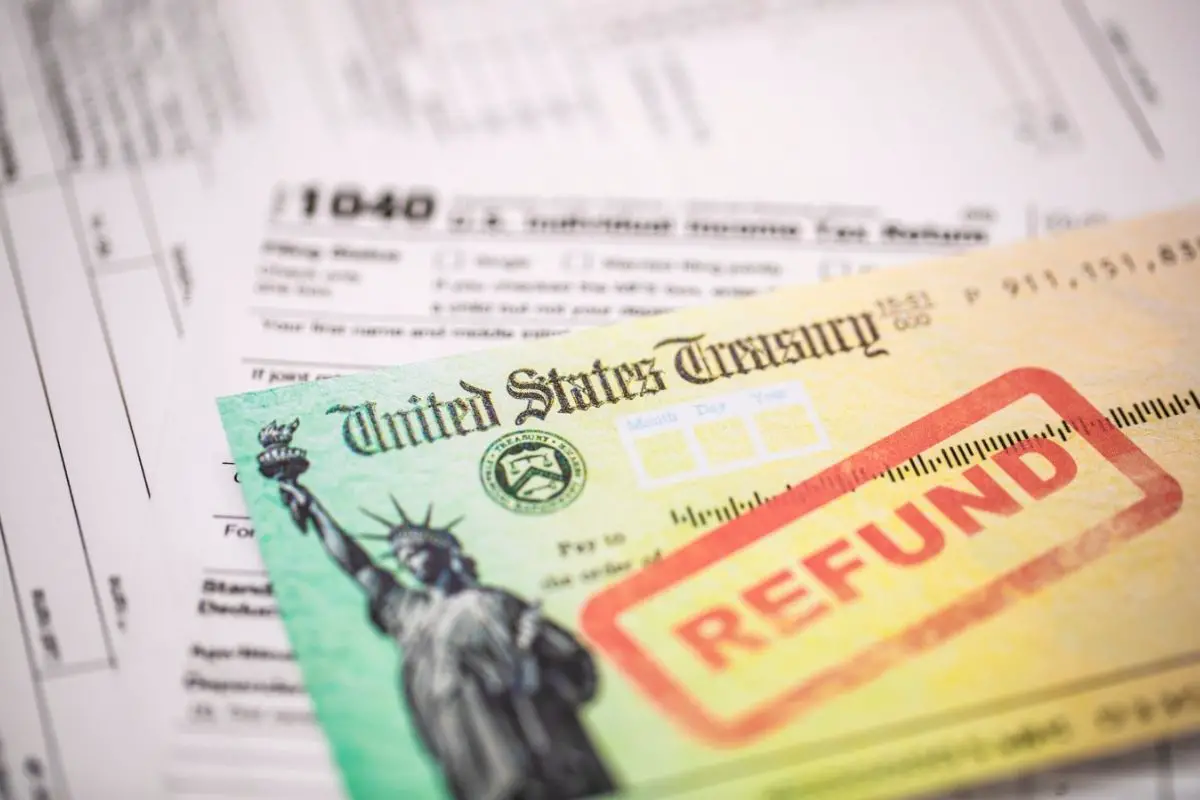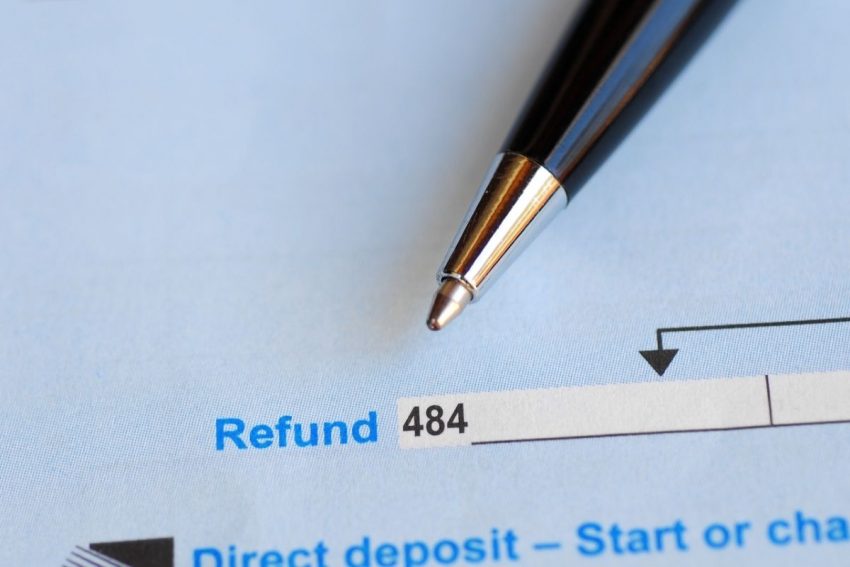No one enjoys paying taxes. For most of us, the hope of a tax refund is the one silver lining to the whole process.

Tax refunds are common for individuals, but are they applicable to businesses?
Contents
Understanding Your Business Entity Type
Different business entities pay their taxes in different ways.
Before we talk about all things tax-refund-related, it’s important to determine the type of business entity you have, and how you pay taxes.
An estimated 95% of American businesses are pass-through entities.
These entities, which consist of LLCs, S Corporations, sole proprietorships, and partnerships, will often file business tax returns, but they won’t pay their federal income taxes to the IRS.
This is because their profits will work their way through to the owner’s individual tax return, meaning that the business owner is liable to pay these taxes rather than the business.
So, if you own a pass-through business, you may need to pay your state income taxes or federal income taxes throughout the year.
You can do this by having your taxes withheld from your paychecks or by making your estimated quarterly payments.
Of all the business entities, C corporations are the only type to pay their income taxes directly to the government.
Understanding how each business pays its taxes will help you determine whether or not your business is eligible for a tax refund.
Here’s a brief breakdown of how different business entities pay their taxes.
Partnerships
Business partnerships must file with Form 1065; however, they don’t pay directly to the IRS.
Each partner will get a Schedule K-1 detailing their section of the company’s profits, and this will be used to complete their individual tax returns.
If a tax refund is applicable, it will be given to the owners, shareholders, or partners.
The refund will be based on their personal returns and total income.
S Corporation
An S Corporation will file its taxes with Form 1120S.
Members of S Corporations will need to complete their own personal tax return.
An S Corporation can file for a tax return, but like partnerships, the taxable income will pass through to the personal tax return of the owner or shareholder.
Limited Liability Company (LLC)
LLCs can file in multiple ways, but they also won’t pay their taxes to the IRS.
Each partner will get their own Schedule K-1 and will need to complete their own personal return.
The IRS treats LLCs in the same way as sole proprietors or partnerships, depending on the number of people in the LLC.
This means that the individual members may be eligible for tax refunds, but not the business as a whole.
Sole Proprietorship
These businesses don’t file separate tax returns.
The owner will need to report all business income and expenses on a Schedule C form, filed with their individual tax return.
Sole proprietors are entitled to a tax refund if their estimated tax payments are greater than their tax liability, based on the company’s general profit and loss.
However, it can be complicated for sole proprietors to prepare accurate profit and loss statements, which can make getting a refund challenging.
Corporation
C Corporations will file their taxes with Form 1120, and they’ll pay income taxes directly to the IRS.
Technically speaking, C-Corporations are the only entities that are eligible for tax refunds, because they’re taxed differently from other types of entities.
The Different Types Of Business Taxes

Businesses will need to pay different types of taxes. These include:
Payroll Taxes
If your business has employees, it must report and deposit state payroll and federal taxes.
Sales Or Excise Taxes
Sales or excise taxes exist because multiple localities and states levy a sales tax on the transaction of services and goods.
Excise taxes may be applicable on services and goods such as trucks and tractors, airline trinkets, and fuel.
A business must calculate how much of these taxes are applicable to them and report them to the appropriate taxing authority.
Self-Employment Taxes
Self-employed business owners pay self-employment taxes.
LLC members, partners in a partnership, and sole proprietors must also pay self-employment taxes on any self-employment earnings that exceed $400.
Income Taxes
Many states will also levy income taxes on businesses and individuals. (This is not considered a federal income tax).
Reduce Your Taxable Income
Not every business is eligible for a tax refund. In fact, most aren’t.
This is why it’s advantageous for businesses to work on reducing their taxable income to save money in the long term.
Expenses are deductible if they’re considered ordinary and necessary by the IRS.
Some examples of these expenses can include:
- Business Insurance
- Rent
- Bank fees
- Salaries and wages
- Taxes and licenses
- Advertising and marketing
- Utilities
- Travel
If your business isn’t eligible for a tax refund, you should find out whether you have any ‘ordinary and necessary’ expenses defined by the IRS that you can claim back.
Can Small Businesses Get A Tax Refund?
Unfortunately, most small businesses aren’t eligible for tax refunds.
This is because most small businesses don’t pay their taxes directly.
C Corporations are one of the only entities to receive tax refunds because they pay their taxes directly to the IRS, and their taxable income does not flow through to the shareholder’s or owners’ personal tax return.
However, your small business may be able to reduce its taxable income by exploring the deductible expenses outlined above.
This is often the best way for small businesses and other entities to save money.
The Bottom Line
Tax refunds are a saving grace for thousands of individuals across the country.
Unfortunately, not all businesses are as lucky, and most of them will not be eligible for a tax refund unless it’s through a shareholder’s or owner’s personal tax return.
C Corporations are the only businesses fortunate enough to be eligible because they pay their taxes directly to the IRS.
Thankfully, taxable income can be reduced in several ways; so, even if your business isn’t eligible for a tax refund, it can still save money.





